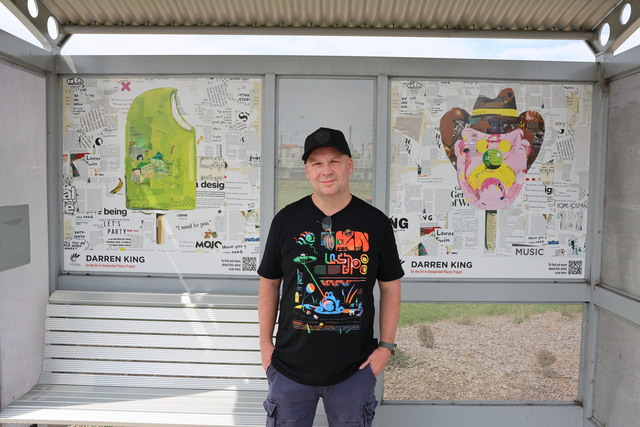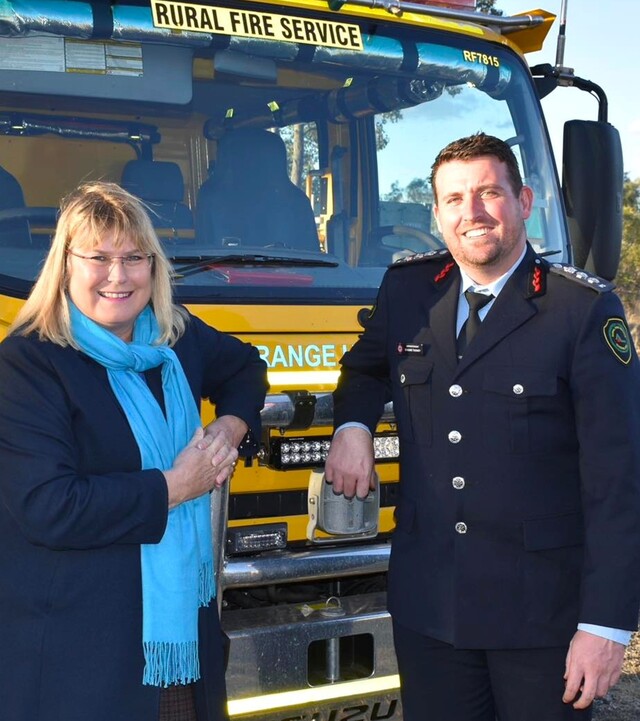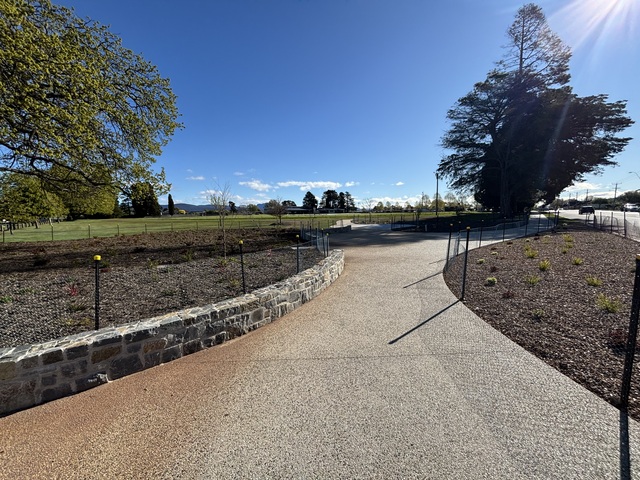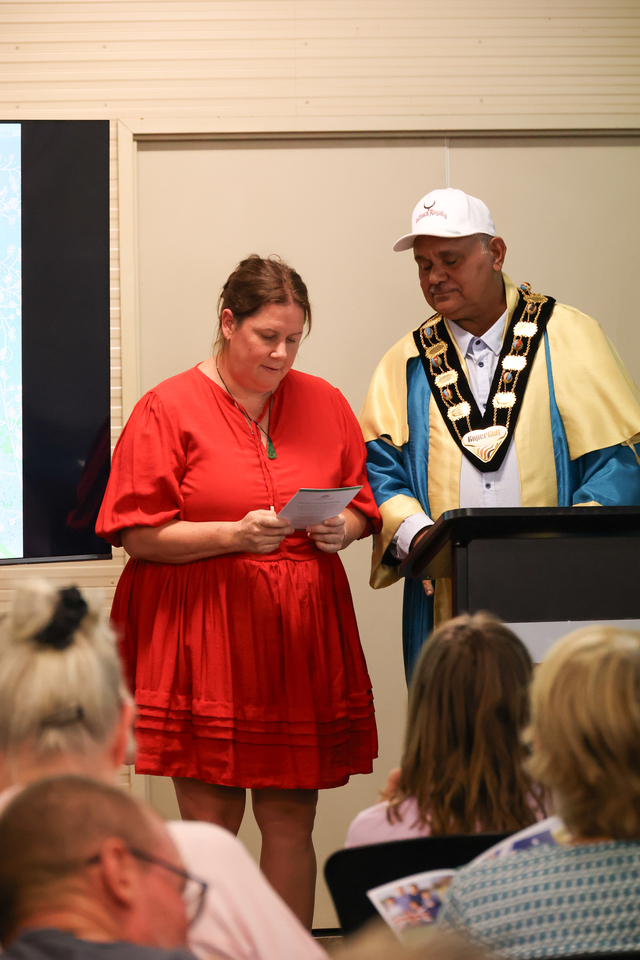At the 2008 Local Government Managers Australia National Congress at the Gold Coast,
Local Government FOCUS invited delegates to nominate individuals or teams from their council who are improving their council’s operations or enhancing service delivery within their community.
In this edition, we showcase the next two of our high achievers for 2008.
Lee Glindemann, Acting Program Manager Development, Whitsunday Regional Council, Qld
Located in tropical north Queensland, around 1,100 kilometres north of Brisbane, Whitsunday Regional Council covers more than 23,800 square kilometres and has a population of around 30,700 people.
There is currently around $2 billion worth of development either happening or imminent in the area, including the Port of Airlie development, which is a multimillion dollar marina and residential development at Airlie Beach.
Whitsunday’s Director Planning and Development, Peter Button, said Council’s Acting Program Manager of Development, Lee Glindemann, does a fantastic job of overseeing this development and growth. He said through sheer persistence, commitment and a belief in the role Local Government can play in positive planning, Lee has risen from Junior Planner to her current position.
“Lee is an exemplary model for anyone that wants to succeed in their own profession,” he said. “She has earned huge amounts of respect from Councillors, Council staff and the development industry.
“She is scrupulous in what she does, fair, pragmatic and focused on outcomes that have the maximum benefit to the community in the long run, not just quick fixes.”
Lee Glindemann began working for Council in 1986 in a legal role, however she was soon placed in the planning and engineering department to undertake planning assessments.
Some 22 years later, she now has a Bachelor in Planning under her belt and is responsible for all development assessment, building, plumbing and compliance in the Whitsunday Regional Council area.
“Every day is different,” Lee said. “There is always a different issue – whether it be development related or community related, I never get bored. I most enjoy being able to help people, whether it be a large developer, or individual, wanting to subdivide a small block of land. It is satisfying to work through and achieve a result that is good for Council, the community and them.”
Lee Glindemann said she finds assisting with the establishment of home businesses most rewarding.
“I often assist mums and dads to go through the processes of what they need to do,” she said. “It is a great feeling knowing that I have made a potential difference in their lives and helped them on their way to achieving something new.”
Lee Glindemann believes it is crucial to treat all customers equitably and provide the same level of service, regardless of whether they are major developers or little players.
“It is also important to be open and transparent,” she said. “We need to be thorough and ensure that we provide all the relevant information available to them.”
Lee said the first thing she teaches new staff is to look outside the square.
“Nothing is black and white,” she said. “I teach my staff that they need to be on the lookout for solutions, not problems. If they do come across a problem, they must identify a solution and tell the rest of the team what that is. There is no time to procrastinate.”
Lee is proud to have survived and stayed on top of recent changes at Whitsunday, and also to have survived the amount of development over the years.
“My role is very challenging, but very rewarding,” she said. “While at times it can be frustrating, it is key to remain focused on the end goal. It is satisfying to see projects develop from sketches into workable plans, and eventually on the ground.
“It is also humbling to see the number of very good staff that I have mentored and trained up. Several staff came to Council straight out of school in administration roles and are now town planners, while others moved on to positions around the world.
“Having a good workforce around me is key, as it allows me to focus on the bigger issues, knowing that the day to day operations will be taken care of.”
Financial Services Team, Moree Plains Shire Council, NSW
Located on the New South Wales and Queensland border, Moree Plains Shire Council is one of the largest Local Government areas in New South Wales.
With an annual expenditure of $32 million, Council provides services to a population of 17,500 people. In the past, managing this budget has been a challenge, however in recent years the Shire’s Finance team has led a dramatic turnaround in Council’s financial position.
Council’s Director of Corporate Services, Ross Earl, said that in achieving the turnaround, the team introduced a number of strategic initiatives that will result in a structured financial management and asset replacement program.
“In 1998–1999, Moree Plains Shire Council was placed on the Department of Local Government’s financial watch list due to continued late lodgement of its annual financial reports, poor liquidity, poor debt recovery and deteriorated condition of its infrastructure,” Ross Earl said. “However, Council was removed from the financial watch list in 2005, as a result of its hard work, commitment and forward thinking initiatives.”
Council’s Financial Services section comprises 12 staff responsible for finance, accounts payable, accounts receivable, debt recovery, customer service and rates.
Finance Manager, Andrew Probert, said Council was removed from the Department’s financial watch list after having met all financial statutory reporting requirements and deadlines since 2002.
“We also reduced Council’s outstanding rates percentage from 11.69 per cent in 2004 to 8.27 per cent in 2007, and we expect this to reduce further for 2008,” he said. “Council’s unrestricted available cash was also increased from only $9,000 in 2003, to $7.36 million in 2007 and we have maintained an operating surplus before capital grants and contributions for the last four financial years.”
Andrew Probert said Council achieved these results by improving internal systems and procedures and maintaining a strong focus on getting the fundamentals right.
“Two major improvements have been the implementation and rollout of new long term budgeting software and the total restructure of our ledger,” he said.
“The budgeting software is a highly visual budgeting, modelling and analytical reporting application, which provides a user friendly point and click environment that enables staff to easily and quickly gather information concerning their budget areas.
“We installed the software on all supervisors’ and managers’ computers and this has enabled Council to complete a five year recurrent budget and a ten year project budget.
“The implementation of this program has also reduced the time spent by finance staff in producing reports for managers, as they are able to more easily generate the required reports themselves.”
Andrew Probert said the greatest challenge the team has faced has been managing the impact of the Water Management Act over the past four years.
“The removal of water for rating purposes would see the need to redistribute approximately $3.5 million in rate revenue,” he said.
“Moree Council has been at the coalface to achieve legislation changes that would allow all councils to manage this challenge to their best ability.
“Significant resources have been used to try and ensure the best possible result for councils and ratepayers in solving this problem.”
Andrew Probert said that as a result of these and other initiatives, reporting to Council and its Committee has improved significantly.
“The timeliness and accuracy of reports continue to increase as our systems, ledger and processes continue to improve,” he said.
Andrew Probert said having no staff turnover during the transformation period has been a major contributor to the team’s success.
“It has allowed us to maintain our key staff and continue to improve year after year,” he said.
“Our finance motto is ‘continuous improvement’ and we will be definitely working hard in the future to continually improve our systems, procedures and reporting to ensure that we are providing the reliable and timely information that our Council and stakeholders require.”







